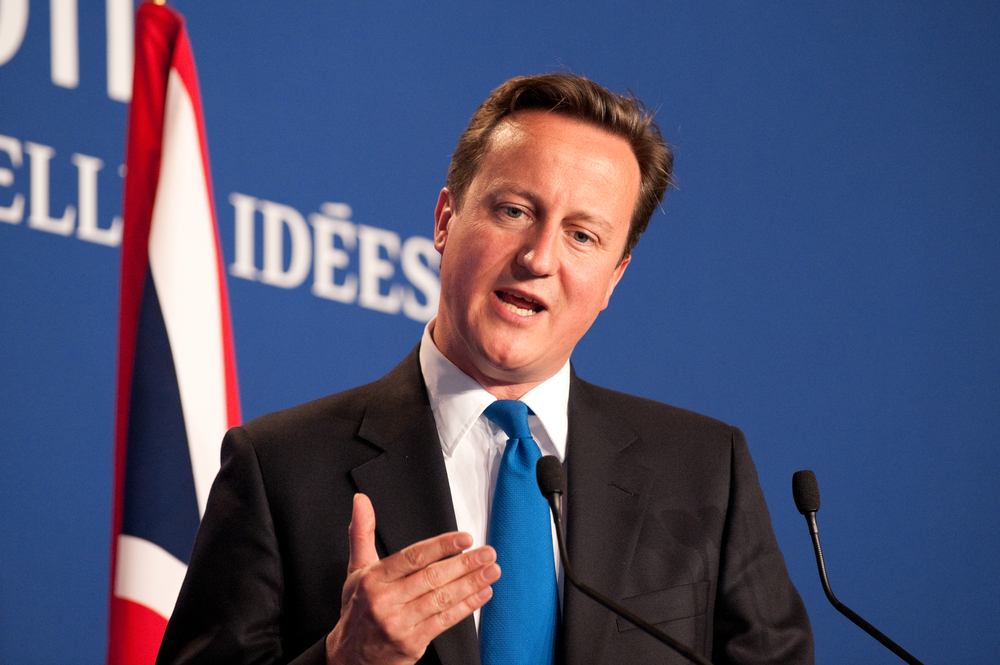With all the coverage of the 2015 election I thought it would be an interesting task to sit down and analyses the election manifestos of the main political parities solely from the point of view of which party would be best for business innovation. This means delving deep into each parties proposed policies around entrepreneurship, small & medium size businesses as well cultivating a wider economic environment that is favourable for business start up. This also means putting aside my personal political views (bit of a Labour man), as much as is possible, to make this hopefully an objective overview of which party is looking to support entrepreneurs the most. This article is certainly not designed to swing your vote but instead perhaps explore something that wasn’t really mentioned during the election process – namely who is best party for the entrepreneur?
Firstly, lets explore two major factors that are continuing to shape the UK’s economy for all businesses. This is of course the sustained fallout of the 2008 economic crash, that is still having profound implications in the way businesses and government are run – while the next five years is predicted to gradually improve there is no doubt that the UK’s economy is still in recovery mode. The second major factor is Europe; everything from a Greek exit to our own place within the EU, with the potential of an EU referendum during the next government should The Conservative party win a majority there is a very real change we might also be heading for the EU exit door. These factors certainly don’t lead to the most favourable of economic environments for business – recovery and uncertainty.
So what do The Conservative party offer to an entrepreneur in their manifesto – well good news. Not only does it have a clear focus on economic improvement, based on a track record of generally improving the UK economy (we saw in 2014 the UK economy grow faster than any other advanced economy) but defined incentives for entrepreneurs in the shape of Small Business Rate Relief. In addition some 27 thousand business mentors will be made available to entrepreneurs and small businesses that would not be able to afford the advice otherwise – so far so good. However, I am rather more skeptical about George Osborne’s promises of a ‘Northern Powerhouse’ – despite the impressive figure of investment in national infrastructure and UK based business research (£2.9 billion) – cities like Manchester, Leeds, Sheffield and Newcastle to name but a few need far more investment on an entrepreneurial support level to build on the successes so far. For example Newcastle has become well known within the entrepreneurial community over the last four years for its developing “tech hub” – indeed you can read more about it on the Ignite100 website which is now one of the UK’s leading Startup Accelerator Programmes – nonetheless the original idea for a Newcastle based “tech hub” came from passionate individuals that came together to crowdsource funding to make it happen rather than from a top down initiative. Therefore, I would have like to have seen, from an entrepreneurial point at least, a commitment within the “Northern Powerhouse” promise to support, seed and grow “tech hubs” in all major UK cities north of London.

In addition the proposed referendum on EU membership has got to be a cause for concern for small businesses, indeed, businesses of all sizes, as it effect the status-quo of our ability to access the European market with new products. While the renegotiation of our relationship with Europe might not be a bad thing on multiple levels the threat of leaving the EU entirely will no doubt have an impact on businesses, especially those start ups that are looking to sell into the EU who now cannot easily predict what the environment will be to do so from 2017 onwards.
Turning to the Labour Party it is abundantly clear that they simply do not have a concise economic plan that could gain the support of entrepreneurs (or indeed the wide business community). Where the plan is set forth it seems remarkably similar to that of The Conservatives, namely freeze business rates, invest in national infrastructure and the north – yet, by sticking with planned austerity cuts (albeit not as drastic as The Conservatives, potentially leading to borrowing more) in the end there is little to distinguish between the two parties other than The Conservative party seems to be much clearer in exactly what their plans are for the economy. Beyond these general Labour points their manifesto is rather too descriptive, without the qualifications and details of that of The Conservative party. Yet, there is a saving grace – by their commitment to maintain the UK’s membership in Europe it will ensure that a period of EU uncertainty will be avoided.
The Lib Dems’ manifesto is somewhat of a strange one in the sense that they suggest that The Conservatives deficit cuts were unscrupulous, which they might well have been, yet rather than ending austerity the Lib Dems will do it more “fairly”. This is odd in the sense that inevitably cuts will effect individuals in society and the chances are even the Lib Dems cuts will hit the sick, disabled and poor the hardest – where exactly is the fairness in that. However, when it comes to the economy the Lib Dems talk about a “greener economy” based on new principles of capitalism – building on the new Green Investment Bank which backs “green” start up ideas and businesses around the country. This is good news if you are an environmentally conscious entrepreneur. It is also good news for a long term economic forecast, enabling a society based on greener sources of energy – something certainly worth looking into more depending on your business type.

Ultimately, therefore I would summarise the following (i) The Conservatives are the clear favourites on purely an economic level, categorically more impressive on the entrepreneurial support front than Labour – though the threat of Brexit looms (ii) Labour, despite hammering their economic policy into stone, is far more flimsy than The Conservatives clear plans though Britain’s membership of the EU would be assured and (iii) the “greener” economy promoted in the Lib Dems manifesto is certainly appealing for environmental entrepreneurs – however, I fear the Nick Clegg’s party will get crushed for a different point, remember those promises about University tuition fees?!
On the business front it has been another business week as the business is continuing to expand at a rapid pace. With over 100 students waiting for lessons in places we are still hiring teachers I know that the potential for the continued expansion of the business is massive. However, ensuring that the right structures are in place to enable that to be a smooth upward trajectory of growth is an equally massive challenge – this includes stepping back from business tasks that I always thought I would do so I can focus on other aspects of the business. Alongside the help I now receive with the website writing (mostly from Exeter Uni students!), I am having some help on the admin side of things with enquiries and invoices now being looked after by other people – this has freed me up to hire new teachers and focus on the management of the business rather then simply fulfilling its basic processes (scary stuff!). On the website front, thanks to the likes of Rhys Lewis (first year, Exeter Uni student), Belinda Lavin (ex-Exeter student), Adam Sumnall (ex-Exeter student) and a few others we are now cracking through the websites with Drum Lessons Birmingham and Piano Lessons Aberdeen going live this week – the later being a fantastic achievement as the first website released in the initial expansion was the Guitar Lessons Aberdeen website (due to me writing them in alphabetic order), so to be able to expand into a third instrument in Aberdeen is great news and far beyond my original ambitions.
This progress is in addition to hiring new teachers in for the Drum Lessons Derby and Drum Lessons Edinburgh websites where a very talented drum Italian drum teacher, Diego Zanelli, has joined the team. So the business is continuing to grow each week – yet, like any business the economic environment the the business exist within is critical to its success. Paying for music lessons at £25 to £30 per hour is certainly not cheap – that is a £50 to £100 per month commitment to learn that instrument and certainly one of the first things that goes when people want to reduce their outgoings in times of economic depression. Therefore, the election in a few days time will have an impact on my business as each parties different economic plans will foster an environment more or less favourable to the average person having disposable income. For it is in the disposable income that music lessons are paid for and the business is built. Ultimately the link between the political environment and the success of your business is ever-present and something that all entrepreneurs should keep an eye on.
Posted under Business Innovation, Politics
This post was written by
Deprecated: get_the_author_url is deprecated since version 2.8.0! Use get_the_author_meta('url') instead. in /var/www/html/wp-includes/functions.php on line 5213
Matthew Rusk on May 5, 2015
Tags: Business Innovation, Politics





